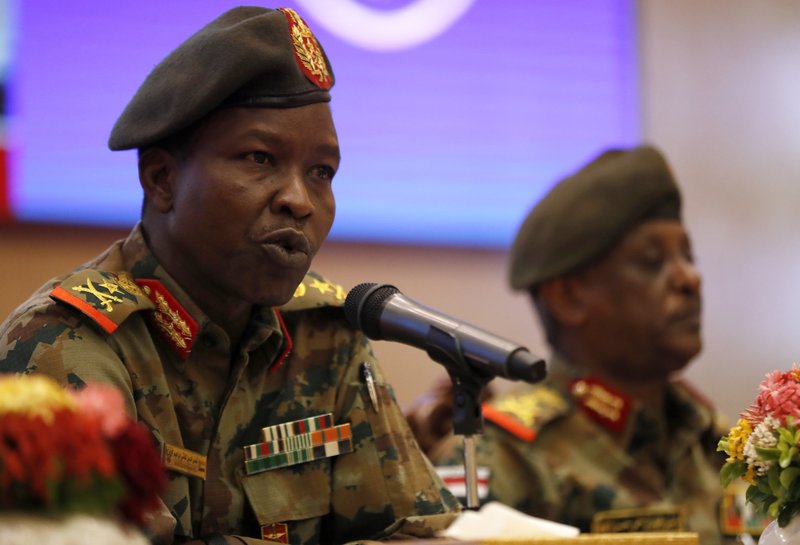KHARTOUM, Sudan -- Sudan's protest movement accepted an Ethiopian road map for a civilian-led transitional government, a spokesman said on Sunday.
The plan was announced after a monthslong standoff with the country's military rulers, who did not immediately commit to the plan.
Ethiopia has led diplomatic efforts to bring the protest and military leaders back to the negotiating table after a crackdown against the pro-democracy movement led to a collapse in talks. According to protest organizers, security forces killed at least 128 people across the country after they violently dispersed the sit-in demonstration outside the military's headquarters in the capital, Khartoum, earlier this month. Authorities have offered a lower death toll of 61, including three from the security forces.
Yet it appeared that protest leaders, represented by the Forces for the Declaration of Freedom and Change, were open to the Ethiopian initiative as a way out of the political impasse.
A spokesman for the Sudanese Professionals' Association, which is part of the Forces for the Declaration of Freedom and Change, told The Associated Press that the proposal included a leadership council with eight civilian and seven military members, with a rotating chairmanship. All the civilians would come from the protest group, except for one independent and "neutral" appointee, Ahmed Rabie said.
According to a copy of the proposal obtained by the AP, the military would chair the council in the first 18 months, and the Forces for the Declaration of Freedom and Change the second half of the transition.
Rabie said that the road map would build on previous agreements with the military. These include a three-year transition period, a protester-appointed Cabinet and a protester-majority legislative body.
Rabie added that protest leaders would also discuss with the Ethiopian envoy, Mahmoud Dirir, the possibility of establishing an "independent" Sudanese investigation. Previously, the Forces for the Declaration of Freedom and Change had said it would only resume talks with the military if it agreed to the formation of an international commission to investigate the killings of protesters.
The ruling military council has so far rejected the idea of an international probe, and says it has started its own investigation, in parallel with that of the state prosecutor.
The protest group said Saturday that their approval of the Ethiopian plan "pushes all the parties to bear their responsibilities" to find a peaceful solution.
It urged the military council to accept the plan "in order to move the situation in Sudan" forward.
At a news conference at the Ethiopian embassy, the protest group said it was demanding trust-building measures from the military. These included concerns about the investigation into violence, restoring severed Internet connectivity, and ordering the paramilitary Rapid Support Forces -- widely blamed for attacks against protesters -- back to their barracks.
The spokesman for the military council, Gen. Shams Eddin Kabashi, confirmed at a news conference that the council had received a proposal from the Ethiopian envoy, and another one from the African Union envoy to Sudan, Mohamed El Hacen Lebatt.
"The council asked for a combined initiative to study and discuss the details," Kabashi said. This joint proposal should be received by today, he said.
Meanwhile, the head of the military council, Gen. Abdel-Fattah Burhan, said on Sunday that he canceled a decree demanding that the joint U.N.-African Union peacekeeping force in Darfur hand over its premises as part of its withdrawal.
Burhan also issued a new decree that says the U.N. facilities when handed over are to be used for civilian purposes in Darfur.
The target for ending the U.N. mission is June 30, 2020.
A Section on 06/24/2019
